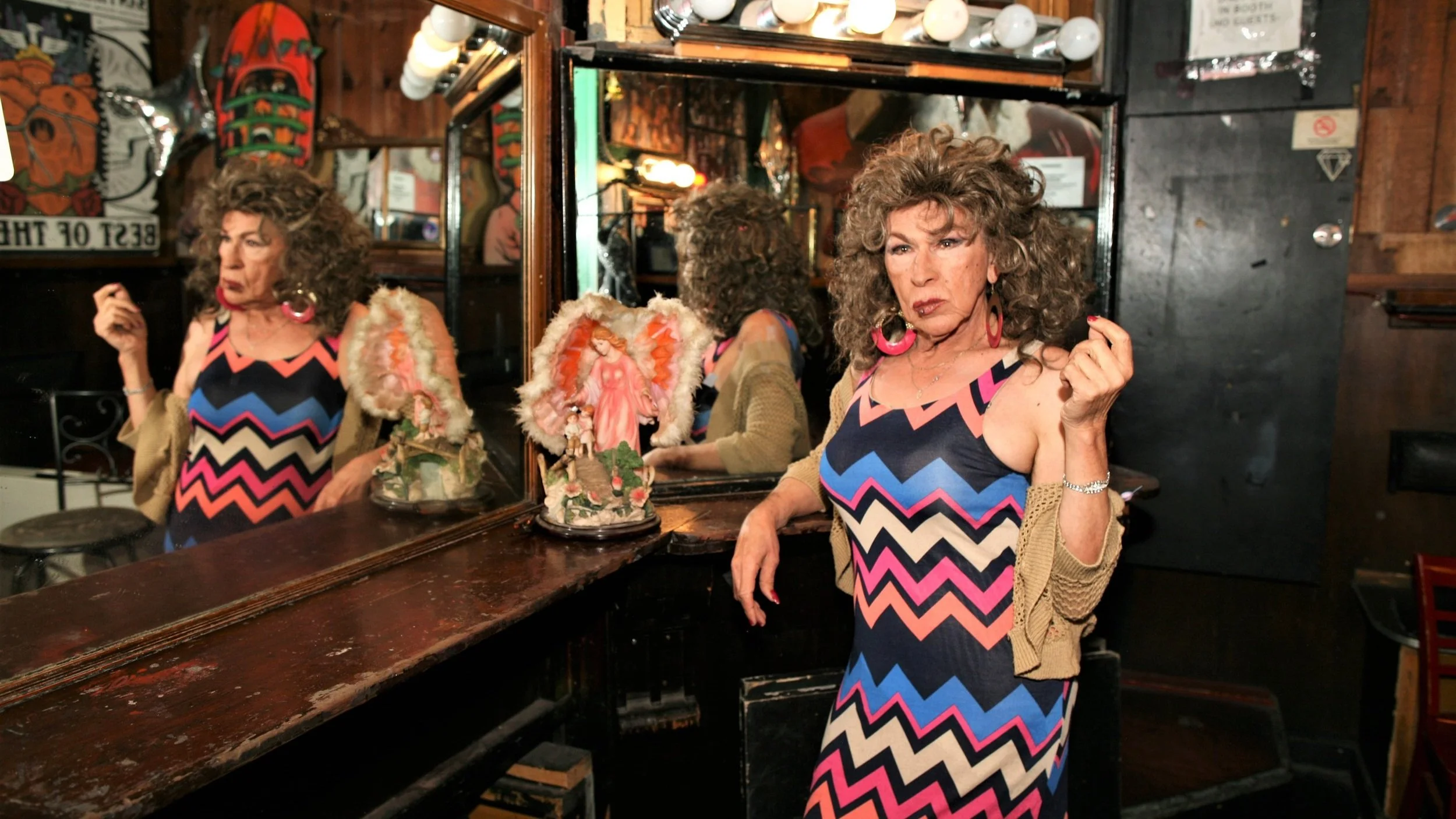Donna
Jay Bedwani pays tribute to the magnificent transgender activist, performer and artist Donna Personna.
Living as we do in an age when transgender issues have become something of a battlefield, the timing for the release of Donna could not be more appropriate. Its simple, direct aim is to avoid any discussions or any stated viewpoint on the subject and, instead, to introduce us to an individual and let us see for ourselves someone who has truly found herself. The person in question is Donna Personna who is 73 years-old and lives in San Francisco but she was born as Gus. Just to meet her and share her story provides a statement in itself.
The movie’s gay director, Jay Bedwani, got to know Donna and was allowed to film her over a considerable period of time. However, given Donna’s central presence and the degree to which we not only see her life in old age but also hear her reminiscing about her past history, Donna feels every inch her film. Her story is that of somebody who had to break away from her family due to having grown up in San José in a Christian household and it was in the 1960s that she started to find in the Tenderloin area of San Francisco a place where as a transgender person she could find acceptance. As a boy she had been called a sissy and that had encouraged her to repress what she was feeling about herself. Later still she was anxious not to become known for behaviour that would reflect scandalously on her parents and on her many siblings.
The first hour of Donna blends her past and her present and in one respect it fuses them. She learns of a straight playwright, Mark Nassar, who is making a play out of an historical event. That event is the riot that occurred in San Francisco at Compton's Cafeteria when transgender women reacted against police brutality and, since Donna had been present when it happened, Nassar approached her to talk about her recollection of that occasion. It led to her collaborating with him in the writing of the play which would eventually win praise for its focus on a key moment for the LGBT community since it preceded the Stonewall riots by some three years. Time is significant too when it comes to a friendship that develops between Donna and a young actress and performer, Shane Zaldivar, whose present-day story in many respects echoes the situation that Donna had experienced at the same age.
Unforced and unfiltered, Donna shows us a woman at ease with herself, one who has learnt not to feel shame. Her only regret lies in certain limitations felt by some of her siblings over accepting her, but in the later stages of the film there is some improvement in that respect. However, the extracts featured and the behind-the-scenes footage leading to the actual staging of Mark Nassar’s play take over the last quarter of an hour without achieving the impact that would fully justify them. It's what precedes these scenes that really works, but the film is very welcome even if it does rather fall away despite it short length. In any case it does regain its strength at the very end when Donna shares with us a key belief and hope: "When you are free to be, you can be magnificent".
MANSEL STIMPSON
Featuring Donna Personna, Gloria Villareal, Shane Zaldivar, Mark Nassar, Collette LeGrande, Kimberley Rodregues Lavan, Inez Miranda-Medina, Jeannie Miller, Matt Goodfellow, Kay Riberts, Vivian David.
Dir Jay Bedwani, Pro Dewi Gregory with Jean-Laurent Csinidis, Ph Jay Bedwani, Ed Anne de Mo and Alice Powell, Music Antoine Bédard.
Truth Department/Films de Force Majeure/Lyon Capitale TV/Ffilm Cymru/CNC-Bohemia Media.
75 mins. UK/France. 2022. UK Rel: 15 July 2022. Cert. 15.


